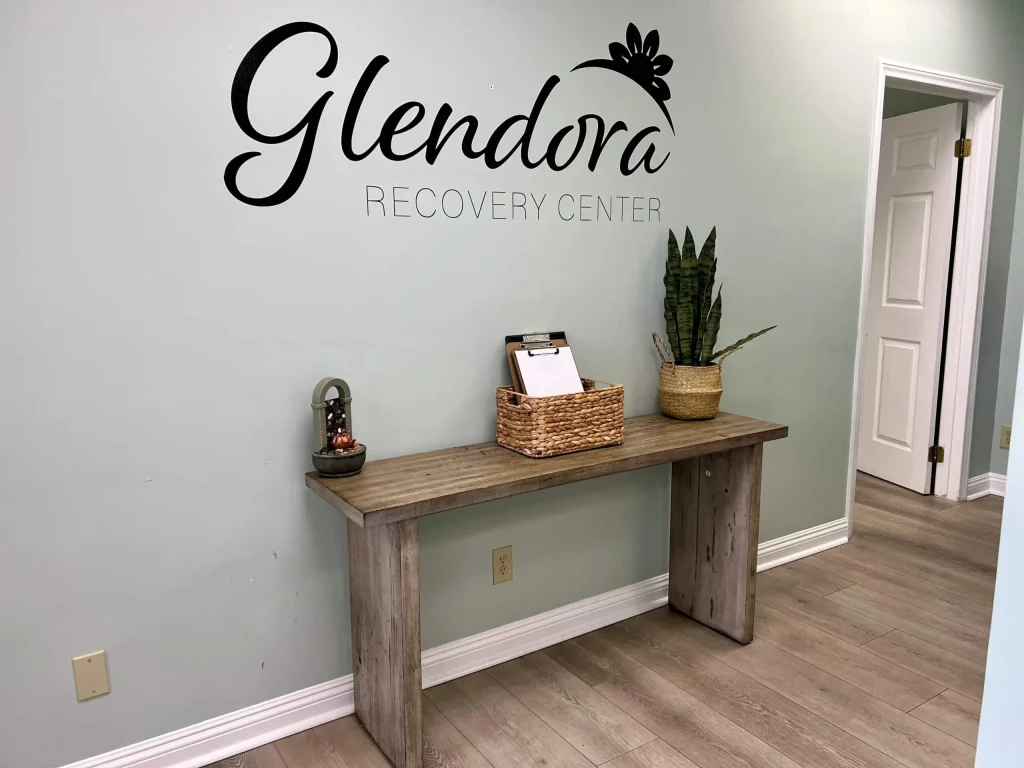Our Locations
1340 E. Route 66 Street Suite 103 & 106, Glendora CA 91740
(626) 594-0881
1340 E. Route 66 Street Suite 103 & 106, Glendora CA 91740
(626) 594-0881

When psychological trauma goes untreated, it can profoundly impact every aspect of your life, leading to anxiety, depression, substance abuse, and relationship difficulties. At Glendora Recovery Center, we understand that healing from complex trauma requires specialized care, compassion, and evidence-based psychotherapeutic modalities. Our trauma treatment Los Angeles program provides a safe, supportive environment where each client can begin their journey toward recovery and reclaim their lives.
Trauma occurs when an individual experiences or witnesses a traumatic experience that is physically or emotionally harmful, overwhelming their ability to cope. This can include severe accidents, a violent event, childhood abuse, or other life-threatening situations. 70% of adults worldwide have experienced at least one traumatic event in their lifetime.
Complex trauma, also known as Complex Trauma Disorder or complex PTSD, develops from repeated, prolonged exposure to traumatic events, often beginning in childhood. Unlike single-incident trauma, complex PTSD affects multiple areas of functioning and can result in challenges with emotional regulation, self-awareness, and interpersonal relationships.
The effects of psychological trauma extend far beyond the initial event, often manifesting in symptoms such as:
Research published by the Substance Abuse and Mental Health Services Administration (SAMHSA) reveals that individuals with trauma histories are significantly more likely to develop mental health disorders and engage in self-medication through substance use. This connection between trauma and addiction underscores the importance of addressing both issues simultaneously through dual diagnosis treatment approaches.

At Glendora Recovery Center, our trauma treatment Los Angeles program combines evidence-based psychotherapy with holistic healing modalities to address the complex needs of trauma survivors. We recognize that each client’s trauma experience is unique, which is why we develop individualized treatment plans tailored to specific needs and goals.
Our team of mental health professionals utilizes proven therapeutic approaches that have demonstrated effectiveness in trauma treatment:
Our trauma-informed therapist team ensures that all interventions recognize the impact of trauma and prioritize safety, trustworthiness, and collaboration in the therapeutic process.
Each client receives individual therapy sessions with a trauma-informed therapist who specializes in trauma-focused therapy. These one-on-one sessions provide a safe space to explore personal trauma history, develop coping strategies, and work through specific challenges at a comfortable pace. The therapeutic fit between client and therapist is crucial for successful outcomes, which is why we carefully match clients with the most appropriate mental health provider.
During individual therapy sessions, clients can expect to:
Beyond traditional psychotherapy, our trauma treatment Los Angeles program incorporates creative and body-based healing modalities:
Our art therapy program provides a non-verbal outlet for processing trauma. Many trauma survivors find it difficult to express their experiences through words alone, especially when dealing with complex PTSD or dissociation. Art therapy allows for emotional expression and processing through creative mediums, helping individuals explore their feelings in a safe, supportive environment.
Yoga therapy addresses the physical manifestations of trauma stored in the body. Our trauma-informed yoga approach helps restore the mind-body connection through mindful movement, breathe work, and meditation practices. This holistic approach supports nervous system regulation and helps clients reconnect with their bodies in a safe, controlled manner.
Understanding that psychological trauma affects individuals differently, we offer multiple levels of outpatient treatment to meet varying needs and circumstances:
Our PHP partial hospitalization program provides intensive trauma treatment while allowing individuals to return home each evening. This Partial/Day Treatment typically involves 6-8 hours of treatment per day, five days per week, making it ideal for those who need comprehensive care but can maintain some daily responsibilities. This level of care is particularly beneficial for clients with complex trauma who require intensive support while developing coping skills.
The IOP intensive outpatient program offers flexible scheduling options with treatment sessions typically occurring 3-4 times per week for 3-4 hours each session. This outpatient treatment level works well for individuals who need ongoing support while maintaining work, school, or family obligations.
Recognizing that accessibility is crucial for trauma treatment, we offer telehealth services for clients who may have difficulty attending in-person sessions. Our secure, HIPAA-compliant platform allows clients to receive individual therapy sessions and participate in group programming from the comfort of their own homes.
Trauma rarely exists in isolation. The National Institute of Mental Health reports that individuals with PTSD are 6 times more likely to develop depression and 5 times more likely to develop anxiety disorders. Our mental health providers are specially trained to recognize and treat dual diagnosis conditions.
Our integrated approach addresses both trauma and co-occurring mental health conditions simultaneously. Whether someone is struggling with depression treatment in Los Angeles needs alongside trauma, requires bipolar disorder treatment in Los Angeles, or needs specialized ADHD Treatment, our clinical team develops comprehensive treatment plans that address all aspects of mental health.
When appropriate, our psychiatric team may recommend medication to help manage trauma-related symptoms such as anxiety, depression, or sleep disturbances. Medication management is always conducted in conjunction with psychotherapy, as research shows that the combination of medication and trauma-focused therapy produces the best outcomes for trauma survivors.
For individuals with trauma-related substance use, we provide specialized addiction treatment that recognizes the connection between trauma and self-medication behaviors. Our programs include specific tracks for various substances, including alcohol addiction rehab in Glendora, CA and cocaine addiction rehab in Glendora, CA.
We also provide addiction interventions when necessary, helping families navigate the complex intersection of trauma and substance use disorders. Our approach recognizes that addressing underlying trauma is often essential for successful addiction recovery.
Young people face unique challenges when dealing with psychological trauma. Our intensive outpatient program for teens in Glendora, CA provides age-appropriate trauma treatment that considers the developmental needs of adolescents. Research from the National Center for PTSD indicates that up to 43% of children and teens experience at least one traumatic event.
We also offer partial hospitalization program for teens in Glendora, CA for young people who need more intensive support. Our teen programs incorporate family therapy components, recognizing that healing from relational trauma often involves the entire family system.
For individuals involved in the legal system, we provide court liaison services and work with various court-approved programs. Trauma often plays a significant role in behaviors that lead to legal involvement, and addressing underlying psychological trauma can be crucial for successful rehabilitation and reducing recidivism rates.

Creating a safe, supportive environment is essential for trauma recovery. Our facility in Glendora provides a comfortable, upscale setting where clients can feel secure as they work through their healing journey. We understand that trauma survivors often struggle with trust and safety, which is why we prioritize creating an environment where these feelings can be gradually restored.
Our compassionate clinical team includes licensed therapists, psychiatrists, and support staff who specialize in trauma treatment. Each team member undergoes specialized training in trauma-informed therapy, ensuring that every interaction supports the healing process rather than inadvertently retraumatizing individuals.
Every client begins their trauma treatment journey with a comprehensive assessment conducted by our mental health professionals. This evaluation helps identify:
Based on this assessment, our team develops a personalized treatment plan that may include various psychotherapeutic modalities, medication management when appropriate, and complementary therapies to support healing.
Trauma treatment is not a quick fix but rather a journey of healing that requires ongoing support. Our aftercare program helps ensure that clients have continued support as they transition back to their daily lives. This ongoing care is crucial for maintaining progress and preventing relapse into unhealthy coping patterns.
We also recognize the importance of building healthy coping skills and support systems. Group therapy sessions allow individuals to connect with others who have similar experiences, reducing feelings of isolation that often accompany trauma. These connections can become an important part of long-term recovery and healing.

Taking the first step toward trauma treatment can feel overwhelming, but you don’t have to face this journey alone. Our admissions process is designed to be as comfortable and straightforward as possible. When you contact us, you’ll speak with a compassionate admissions coordinator who will conduct a confidential assessment to determine the most appropriate level of care.
Whether you’re dealing with complex PTSD from childhood experiences, recovering from a recent traumatic event, or struggling with the dual diagnosis of trauma and substance use, our team of mental health professionals is here to support your healing journey. We understand that finding the right therapeutic fit is crucial for success, and we’re committed to matching each client with the most appropriate trauma-informed therapist for their needs.
DHCS License#: 191012BP
EXP: 12/31/2026
JCAHO #: 666556
Glendora Recovery Center | © Copyright 2025 | Privacy Policy | Sitemap